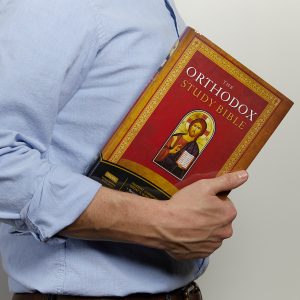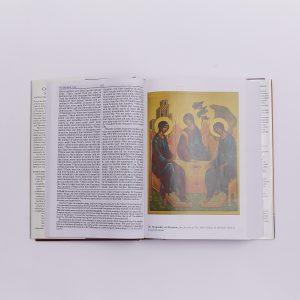Understandably, a thread of grief runs through the gospel account of Jesus’ crucifixion. We’re given glimpses of the people who were closest to Him—snapshots that allow us to imagine their pain and loss. As the story progresses from Good Friday to Easter Sunday, a second thread winds itself into the narrative—a thread of healing and joy.
These two threads continue throughout the New Testament and extend to us some 2,000 years later. Everyone whose hope is in Christ can find comfort and healing by tracing these threads back to their source.
By looking at the grief surrounding Jesus’ death, we can find encouragement to help us cope with our own grief and loss.
The Disciples
Imagine the grief of the men who had left everything to follow Jesus. For three years, they had shared in His ministry—the highs and the lows. They had watched Him still a storm at sea with just a few words. They had seen Him cure all manner of sickness and disability. They had been transformed by His teaching. Jesus had impacted each of them in extraordinary ways, and suddenly they were faced with the prospect of life without Him.
Compounding their grief was their realization that Jesus had warned them about what was going to happen—on several different occasions, in fact. Yet they had refused to listen or to accept the literalness of His words. So, when it finally happened—the betrayal, followed by the arrest and the crucifixion—they were caught by surprise. They scattered to save themselves and never had a chance to say their proper goodbyes.
After His resurrection, Jesus appeared to His disciples in a closed room. He spent time with them, helping them overcome their grief and comforting them with His presence. When Thomas, who was not present in the room, later expressed doubts about what the others had seen, Jesus appeared a second time. Thomas’ doubts—and grief—disappeared forever.
Peter
Imagine the grief of Jesus’ closest friend and self-styled protector. Peter’s sense of loss was magnified by his own devastating personal failure. Hours after vowing never to desert the Lord, Peter denied—on three separate occasions—even knowing him. As far as Peter knew, Jesus’ last memory of Him was his betrayal of his vow.
John 21:15–19 records the risen Jesus’ reconciliation with Peter. Three times Jesus asked Peter if he loved Him. Three times Peter replied that he did. And three times Jesus instructed Peter to care for His lambs and sheep. He restored Peter’s heart and soul and prepared him to serve.
Mary
Imagine the grief of Jesus’ mother. From the time she conceived, Mary understood that her son would be the long-awaited Messiah—Wonderful Counselor, Mighty God, Everlasting Father, Prince of Peace (Isa. 9:6).
Yet that didn’t change the fact that He was also her son. She saw nails driven into the hands that she had held when Jesus was a boy. She stood silently while a crowd hurled insults and spewed hatred at her firstborn child. Mary had watched Him draw His first breath, and she watched Him draw His last. Hers was the terrible grief of a mother who lives long enough to see the death of her child.
Hers was also the inexpressible joy of seeing that which she feared lost forever returned to her. When she saw the risen Jesus, those things which she had “pondered . . . in her heart” since his boyhood (Luke 2:19) suddenly took on a new meaning.
Jesus
The grief of His disciples, His closest friends, and even His mother paled in comparison to the grief Jesus Himself experienced when His heavenly Father turned away from Him. On the cross Jesus “became sin”—the object of His Father’s perfect wrath. The intimate fellowship with God that had sustained Jesus throughout His earthly ministry was broken. Jesus felt the full force of God’s abandonment. He was alone in a profoundly disturbing way. His grief pours from His lips as He quotes Psalm 22:1: “My God, my God, why have you forsaken me?”
When His sacrifice was completed and God’s plan for salvation was fulfilled, Jesus was restored to fellowship. According to Ephesians 1:20, he sits at the right hand of His Heavenly Father.
Us
Two thousand years later, we come to Good Friday with the benefit of hindsight. We know what happened on Easter Sunday. So, we react to Jesus’ sacrifice not with grief, but with a sense of unworthiness and overwhelming gratitude. Yet we’re no strangers to grief. Where do Jesus’ death and resurrection leave us as we struggle with our own devastating losses?
Because of the events of Good Friday and Easter Sunday, those who put their trust in Jesus will live forever in the presence of our Heavenly Father. We may not be able to wrap our minds around everything that entails, but we do know this: because of Jesus’ redemptive work, “God will wipe away every tear from their eyes; there shall be no more death, nor sorrow, nor crying” (Revelation 21:4).
+++
The FIRST EVER Orthodox Study Bible presents the Bible of the early church and the church of the early Bible.
Orthodox Christianity is the face of ancient Christianity to the modern world and embraces the second largest body of Christians in the world. In this first-of-its-kind study Bible, the Bible is presented with commentary from the ancient Christian perspective that speaks to those Christians who seek a deeper experience of the roots of their faith.









